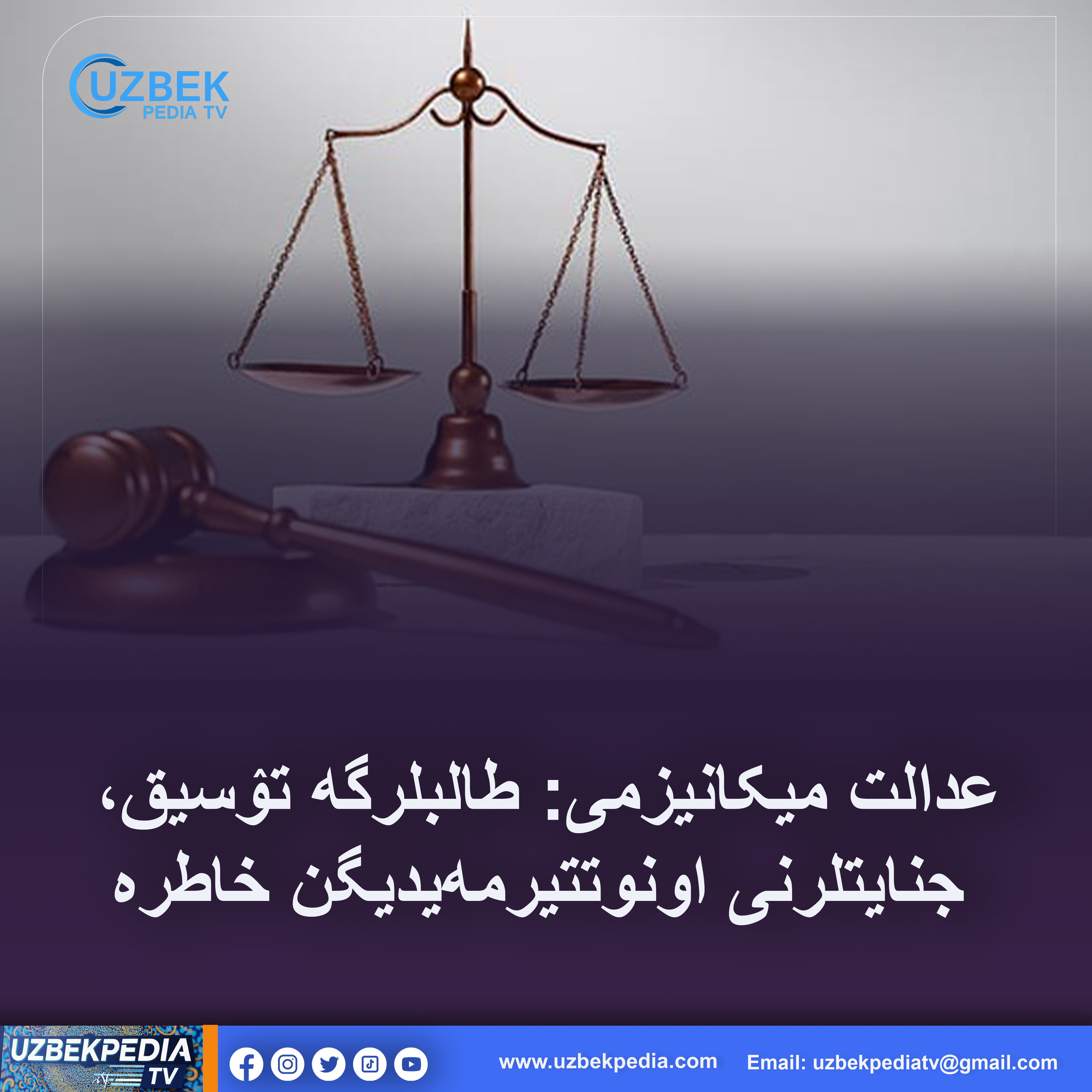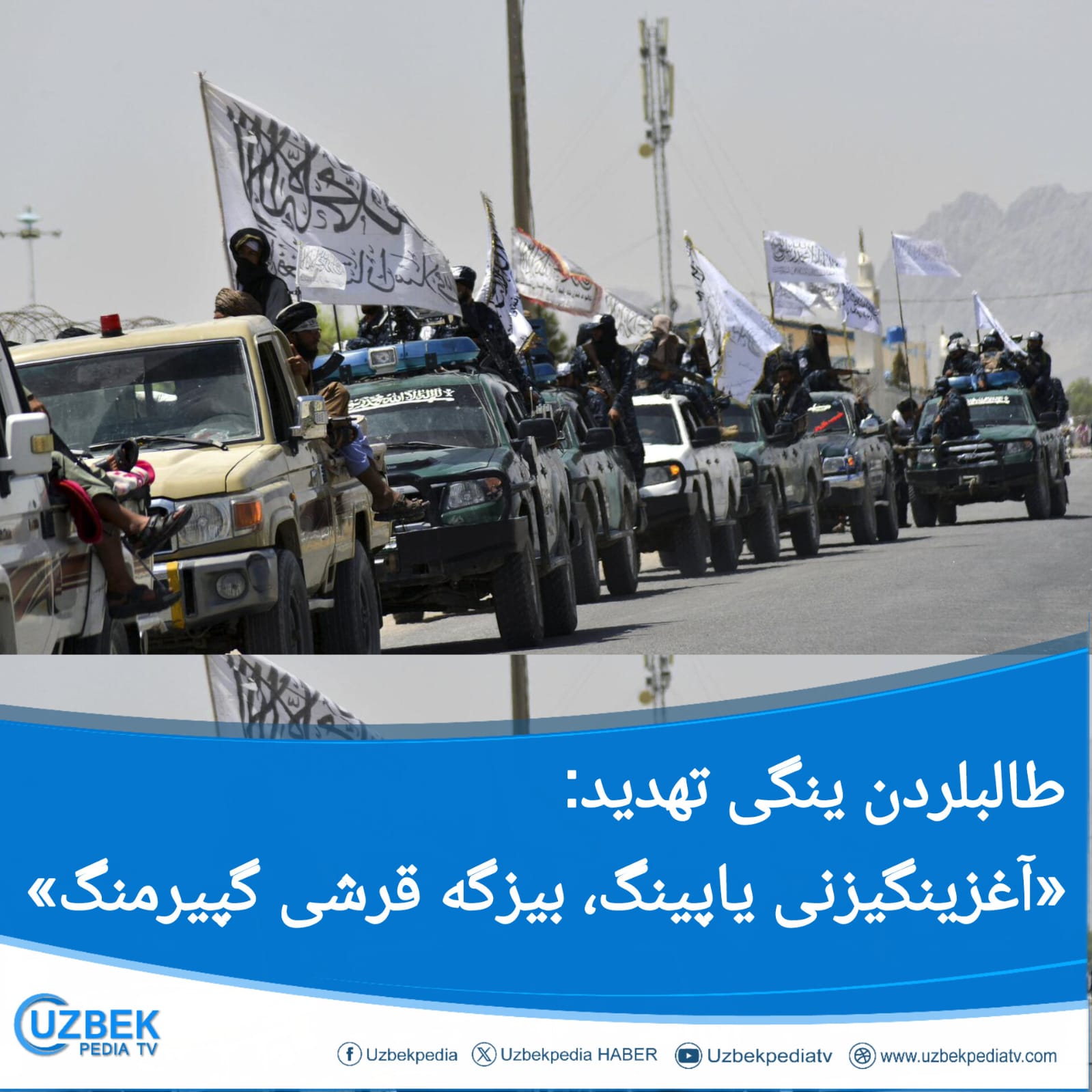Trending

Justice Mechanism for Afghanistan: A Shield Against Taliban Legitimization and a Guardian of Collective Memory
Many citizens consider the adoption of an investigative mechanism to examine human rights violations in Afghanistan a significant step toward achieving justice.
Many citizens consider the adoption of an investigative mechanism to examine human rights violations in Afghanistan a significant step toward achieving justice.
They believe that by recording and documenting the Taliban’s crimes, this mechanism could serve as a barrier against legitimizing the group and could prolong their political isolation.
Citizens also emphasize that at a time when domestic institutions and media outlets are under Taliban control or pressure, this mechanism can serve as a “collective memory,” preventing the crimes and human rights violations in Afghanistan from being forgotten.
Similarly, several experts told the Uzbek Pedia New channel that the adoption of a resolution to establish an independent investigative mechanism into human rights violations in Afghanistan, aimed at holding the Taliban accountable, has increased international pressure on the group, weakened its legitimacy on the global stage, and hindered the normalization of relations between some countries and the Taliban regime.
Shahla Farid, a legal expert, stated that although this is a lengthy process and its lack of immediate effect is understandable, it holds vital importance for Afghanistan’s current situation from the perspective of transitional justice and historical accountability.
According to her, while the mechanism may not be able to bring justice today, it plants the seeds of accountability for the future and paves the way for justice in the long run.
She emphasized, “If such mechanisms do not exist, history will be written by the violators of human rights.
In the absence of such instruments, these very perpetrators will become the narrators of history, and the truth will be lost in silence.
” The legal expert added, “At a time when domestic institutions and the media are under Taliban control or pressure and cannot speak freely, this mechanism can serve as a collective memory, preventing the crimes and human rights violations from being forgotten or distorted.
One of the most important impacts of this mechanism is the accurate documentation of events.
” Ms.
Farid stressed, “If the Taliban are not held accountable today, this documentation can, in the future, pave the way for their international prosecution at the International Criminal Court (ICC) or other special tribunals.
Moreover, this process, by increasing international pressure on the Taliban, will weaken their legitimacy globally and hinder normalization of relations between certain countries and their regime.
” According to her, the lack of access to primary sources, political pressures from UN member states, and the absence of immediate enforcement mechanisms are among the main challenges facing this mechanism.
She said, “The inability to conduct on-site investigations inside Afghanistan is a challenge because UN observers cannot freely investigate due to Taliban control, forcing them to rely largely on secondary sources.
The second challenge is the political pressure from UN member states.
Some governments, due to their own political interests, may undermine the full implementation of this mechanism, as is currently the case with Russia and China, which have taken opposing positions.
” The legal expert further noted, “Another fundamental challenge is the lack of immediate enforcement power, since the United Nations does not have direct means to arrest Taliban members.
Therefore, the implementation of justice depends on the cooperation of governments or the International Criminal Court (ICC).
For this reason, if one asks how this mechanism can ensure accountability for the Taliban, it must be said that this is a gradual and long-term process that requires time, global political will, international cooperation, and continued meticulous documentation.
” Nazifa Jalali, a human rights activist, said that the mechanism acts as a bridge between documentation and criminal justice.
She added, “Some may ask, given that Richard Bennett already serves as the UN Special Rapporteur on the situation of human rights in Afghanistan, what need there is for such a mechanism.
It should be noted that Richard Bennett’s role is to monitor the current human rights situation, report, and provide recommendations.
However, this mechanism has a more technical and in-depth function.
” The activist explained, “The collection, preservation, and documentation of evidence will be conducted in a centralized manner so that it can later serve as a foundation for legal prosecution in courts.
” She emphasized that one of the most important advantages of this mechanism is that it is not limited to the Taliban era; it also investigates and documents human rights violations across different historical periods of Afghanistan.
Meanwhile, several journalists and human rights activists have welcomed the adoption of this mechanism, calling it an important achievement for women and human rights defenders in Afghanistan.
Aisha Quraishi (pseudonym), a journalist, said she was very pleased and hopeful about the adoption of this mechanism by the UN Human Rights Council, especially since it was approved without any voting.
She described the decision as one of the greatest milestones on the path toward achieving justice for Afghanistan.
Ms.
Quraishi noted that the people of Afghanistan, particularly women, have long been victims of widespread human rights violations, oppression, and systematic crimes committed by the Taliban.
She said that before this mechanism was established, many of these crimes either went unreported or, when covered, did not receive sufficient international attention.
The journalist stressed, “This measure is a valuable achievement and the result of persistent efforts by civil institutions, human rights defenders, and women’s rights activists who have tirelessly worked for justice during this period.
” The UN Human Rights Council yesterday adopted, without a vote and by consensus among its members, a draft resolution to establish an independent mechanism to investigate past and ongoing human rights violations in Afghanistan.
The mechanism, proposed by the European Union, particularly focuses on the situation of women, girls, and other victims.
The primary goal of this body is to collect, preserve, and document evidence related to serious crimes committed by the Taliban and other perpetrators of human rights violations.
The adoption of this resolution has been widely welcomed by international human rights organizations, civil activists, and Afghanistan’s civil society, and it is being hailed as a major step toward ensuring justice and accountability.
* Reporter: Mohammad Fahim AZIMI.

